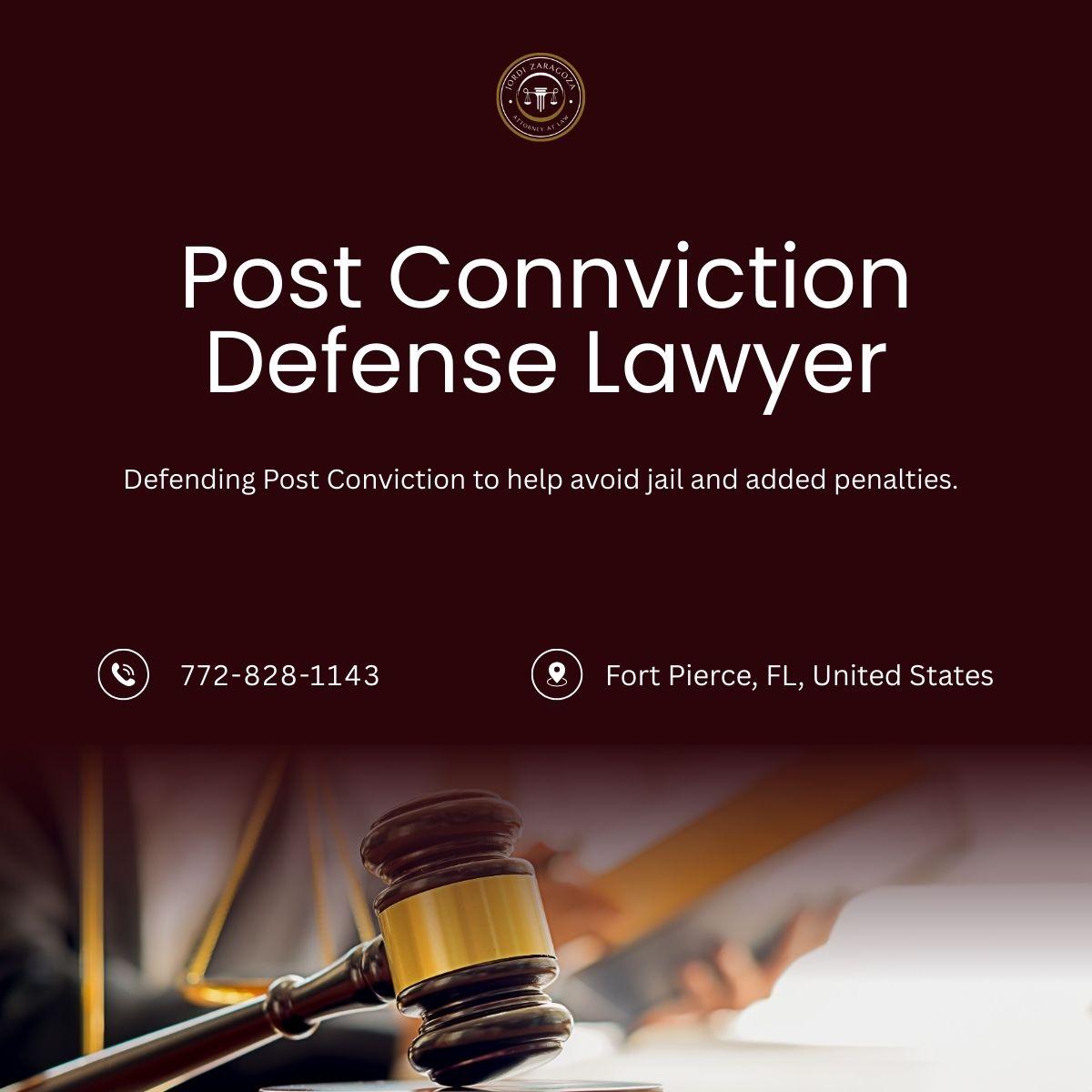Direct Appeal vs Post-Conviction Motion Florida

The Difference Between a Direct Appeal and a Post-Conviction Motion in Florida
When someone is convicted of a crime in Florida, the case does not necessarily end with the verdict. There are legal options that allow individuals to challenge the outcome of their case or the sentence imposed. Two of the most important pathways are direct appeals and post-conviction motions. While both are designed to address potential errors, they serve very different purposes and operate under different legal standards.
Understanding the difference between these two legal remedies can help individuals make informed decisions about protecting their rights and seeking justice after a conviction. Guidance from an experienced post conviction defense lawyer in Florida can be critical in choosing the right path forward.
Protect Your Rights with Experienced Guidance
For those in the Fort Pierce area or anywhere in Florida, legal guidance is available. You can reach out to schedule a confidential consultation at:
📍 Address: 130 S Indian River Dr, Suite 202 Office 218, Fort Pierce, FL 34950
📞 Phone: 772-828-1143
📧 Email: matzar@bellsouth.net
What Is a Direct Appeal?
A direct appeal is the first step available after a criminal conviction in Florida. This process involves asking a higher court to review the trial court’s decision. The appeal is not a new trial but rather a legal review of what happened in the lower court.
The goal of a direct appeal is to determine whether legal errors occurred that may have affected the outcome of the case. For example, issues such as improper jury instructions, evidence admitted in violation of constitutional rights, or prosecutorial misconduct may all be reviewed during an appeal.
In a direct appeal, the appellate court examines the trial record meaning the transcripts, evidence, and documents presented during the trial. No new evidence is introduced. Instead, the appellate judges focus strictly on whether the trial was conducted fairly and according to the law.
If the appellate court finds that significant errors occurred, the conviction or sentence may be reversed, modified, or remanded back to the trial court for further proceedings.
What Is a Post-Conviction Motion?
A post-conviction motion, on the other hand, is a separate legal remedy that happens after the direct appeal process. This type of motion allows individuals to raise issues that could not have been addressed during the direct appeal because they fall outside of the trial record. Working with an experienced Criminal Defense Attorney In Florida can help identify these issues and pursue the strongest arguments for relief.
Unlike appeals, post-conviction motions often involve new evidence or claims of constitutional violations that were not part of the original trial review. For example, claims may involve:
-
Ineffective assistance of counsel (such as an attorney failing to investigate or call key witnesses).
-
Newly discovered evidence that could change the outcome of the case.
-
Constitutional violations that were not apparent from the trial record.
-
Sentencing errors that were not previously addressed.
A post-conviction motion is essentially an opportunity to dig deeper into issues that may have been missed or mishandled during the trial or appeal.
Key Differences Between Direct Appeals and Post-Conviction Motions
While both options serve to protect the rights of individuals after a conviction, their differences are significant:
-
Purpose
-
Direct appeal: Challenges legal errors in the trial record.
-
Post-conviction motion: Raises issues outside the trial record, such as new evidence or ineffective legal representation.
-
Evidence Consideration
-
Direct appeal: No new evidence is introduced; only the existing trial record is reviewed.
-
Post-conviction motion: New evidence and claims outside the record can be presented.
-
Timing
-
Direct appeal: Must be filed immediately after a conviction and sentencing.
-
Post-conviction motion: Typically filed after the appeal process concludes.
-
Outcome
-
Direct appeal: Can result in reversal, modification, or a new trial if legal errors are found.
-
Post-conviction motion: Can lead to a new trial, a modified sentence, or other relief if constitutional or factual issues are proven.
Why Understanding These Options Matters
The difference between a direct appeal and a post-conviction motion in Florida is more than just procedural; it can determine the best path forward for someone who feels they were wrongly convicted or unfairly sentenced.
An appeal focuses on correcting legal errors made during the trial, while a post-conviction motion digs into deeper issues that may not have been visible on the record. Together, these processes create a safety net within the criminal justice system to ensure fairness and accountability.
The Role of a Defense Lawyer
When facing the complexities of appeals and post-conviction motions, having the guidance of a skilled defense professional is crucial. A knowledgeable criminal defense lawyer in Florida can review the trial record, identify appealable issues, and determine whether a direct appeal or post-conviction motion is the stronger path.
Similarly, a Post Conviction Defense Attorney in Florida can evaluate claims that extend beyond the trial record, such as newly discovered evidence or ineffective representation. These legal strategies require experience, attention to detail, and a deep understanding of Florida law.
Having strong legal guidance can make a significant difference in how effectively a case is presented, which in turn can impact the outcome.
Taking the Next Step
If you or a loved one is considering a direct appeal or a post-conviction motion, it’s important not to delay. These processes are highly technical, and missteps can close the door to possible relief. Speaking with a qualified attorney ensures that the right strategy is pursued and that your rights are fully protected.
For those in the Fort Pierce area or anywhere in Florida, legal guidance is available. You can reach out to schedule a confidential consultation at:
Address: 130 S Indian River Dr, Suite 202 Office 218, Fort Pierce, FL 34950
Phone: 772-828-1143
Email: matzar@bellsouth.net
FAQs
1. What is the main difference between a direct appeal and a post-conviction motion?
A direct appeal reviews errors made during the trial using the existing record, while a post-conviction motion introduces new issues such as ineffective counsel or newly discovered evidence.
2. Can you file both a direct appeal and a post-conviction motion?
Yes. Typically, the direct appeal is filed first. If additional issues remain after the appeal, a post-conviction motion may be filed later.
3. Why should someone hire a lawyer for these processes?
Both appeals and post-conviction motions involve complex procedures and strict legal standards. An experienced lawyer can identify the strongest arguments, prepare the necessary filings, and advocate effectively on behalf of the client.





